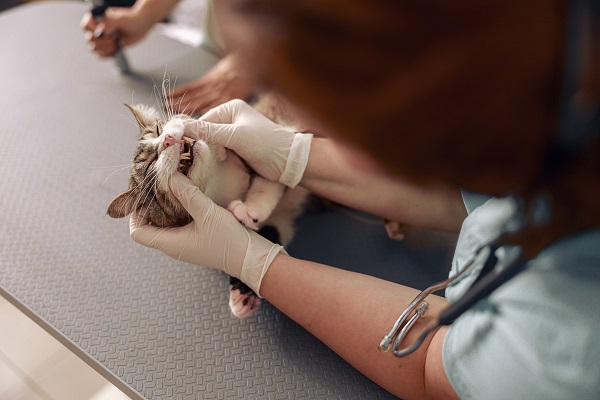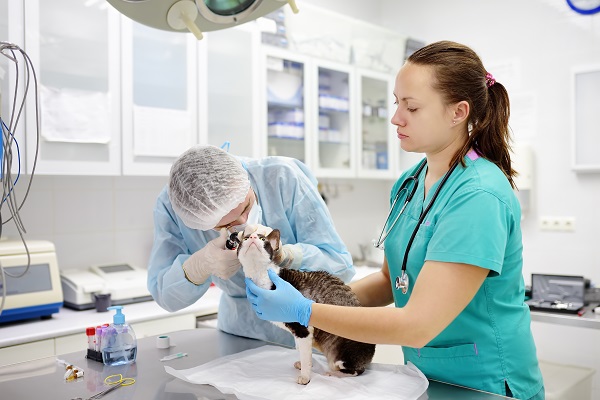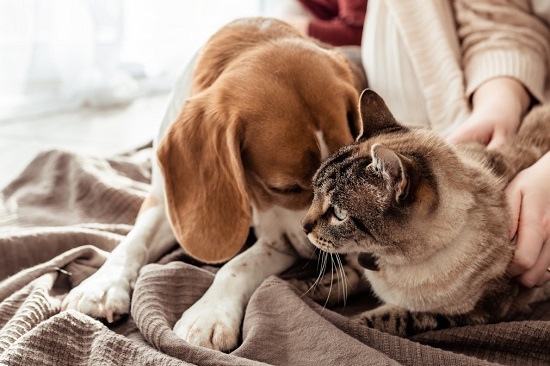Maintaining clean teeth is the primary dental care for cats but not enough to prevent all kinds of dental problems. Staying alert about your cat’s dental health is extremely important because cats cannot express their oral discomfort when chewing or biting. Cats have an innate tendency to conceal pain which might aggravate dental problems.
Even though it might seem everything is fine with your cat, the reality could be different. Your cat might have some dental issues which you need to investigate proactively to prevent them from turning into serious problems, like a painful mouth and increased discomfort that might even require surgery.
Tips for being proactive to prevent dental problems in cats
Bad breath can be alarming
Cat parents are familiar with ‘kitty breath,’ a mild fishy scent that is normal for any healthy cat. But detecting bad breath in your cat is a sure sign of some dental problems. Persisting bad breath can turn worse. You must act fast to prevent the worsening of the condition.
Bad breath in cats accompanied by drooling indicates some gum diseases or could be a sign of tooth decay. You need not be concerned if your cat has occasional bleeding gums, but if accompanied by bad breath or drooling, your cat needs tooth extraction or deep cleaning.
Arrange for an annual check-p of your cat
Regular visits to the veterinarian might not include a dental check-up of your cat. Dental care is an afterthought for us unless compelled to visit the dentists, and the cats get a similar response from their owners. But cats have dental issues if left untreated, which can cause serious health problems.
During the annual check-up, ensure that the vet does a dental check. Besides evaluating the overall health, the vet should evaluate the dental health too.
Start a dental care routine for your cat
A cat’s day should start by cleaning the teeth like our kids. Cat owners should clean their cat’s teeth every day at the same time in the morning. Start the practice while the cat is still young, preferably kittens, because older cats can be more resistant to it.
According to the American Veterinary Medical Association (AMVA), use gauze with toothpaste made exclusively for cats to clean kittens’ teeth daily so that it becomes a habit. To make the experience more pleasant, dip your finger into canned chicken or tuna before rubbing it on the teeth and gums.
Gum stimulation while brushing
One of the essential features of maintaining good oral health for your cat is to pay equal attention to the teeth and gums. Since tooth decay usually starts with inflamed or irritated gums, you should massage the gums while cleaning the cat’s teeth.
If the gums appear reddish and irritated, it is an unhealthy sign because normal gums are pink. The redness of the gums indicates some dental disease. Massaging your cat’s gum can speed up healing and strengthens the gums, thus reducing the chances of gum problems later on.
Read Also: Diseases That Are Common Among Cats
Give dental diets to your cat
For maintaining good teeth for your cat, pay attention to the diet. Being selective about foods and choosing the right foods in consultation with your veterinarian should ensure that your cat has healthy teeth and overall good health.
Cats with oral or dental problems can benefit from prescription diets designed to improve cat’s dental health. These diets, backed by sufficient clinical proof, help maintain good dental health if you feed your cat as the veterinarian advises.
Offer treats that reduce tartar
When pampering your cat with some treats, ensure that these are of the right quality that supports good health. Choose treats approved by the Veterinary Oral Health Council (VOHC) as these have gone through clinical trials and meet the standards of effectiveness.
Dentalife and Greenies by Purina and Whiskas’ Dentabites are approved treats that your cat will like much, and these help in tart control besides cleaning teeth. However, depending on treats is not a wise thing to do because brushing your cat’s teeth is the primary dental care for your cat. The treats and chews act as supplements.
Toys can improve your cat’s dental health
Hard bones are part of a cat’s natural diet, as they should be for predators. Chewing bones are good; for your cat’s oral health as it aids healthy gums and teeth. As domestic cats cannot be predators, veterinarians suggest that toys can be a good substitute for mice and other animals that cats prey upon.
Giving hard toys to cats for chewing is a good practice to take care of their dental health. However, the toys must not be too hard as they can damage teeth. The hardness of toys should be like that of your fingernail. Use toys made specifically for cats.
Fresh water is good for cat’s teeth
When cats drink water, it cleans their mouth from any leftover food particles inside the mouth. Always ensure that your cat drinks enough water after meals. Food debris sticking inside the mouth can lead to bacteria build-up that causes tooth decay and gingivitis.
Read Also: Tips for Cats Who Are Scared of Dogs
Be alert about the dental health of your cat
Do not take gum problems and tooth decay lightly, as they can lead to severe problems of the kidneys, heart disease, and other chronic illnesses.
Regularly check the oral cavity of your cat. Look for signs of dental problems and take timely action.

 DogExpress
DogExpress




















 in Chandigarh, India.
in Chandigarh, India. 
